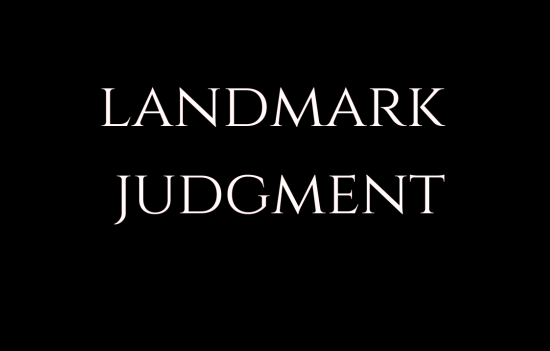Decided on: 18 September, 1984
Equivalent citations: 1984 SCC ONLINE ALL 611, 1984 ALL LJ 1254, 1984 ACC 21 402, 1984 AWC 1045
Bench: B.N Katju and S.K Mukerji, JJ
Petitioner: Nurul Huda
Respondent: Amitabh Bachan And Others Opposite
Statutes Referred: The Constitution of India, Contempt of Courts Act, 1971
Facts:
This petition was filed alleging that the speech made by Amitabh Bachchan in the film ‘Andha Qanoon’ and also the film as a whole scandalised or tended to scandalise the courts of this country in general which amounts to criminal contempt under Section 2(c) of the Contempt of Courts Act, 1971 and is punishable under Section 12 of the Contempt of Courts Act, 1971.
In this case, the opposite party No. 1 was Amitabh Bachchan, an actor in the film ‘Andha Qanoon’. The opposite party no. 2 was Dr. Rani Masoon Raza, the writer of the dialogues of the said film. The opposite party no. 3 was Pooran Chandra Rao, the producer of the film. The opposite party no. 4 was T. Rama Rao, the director of the film.
Issues:
The opposite parties can be convicted under Section 12 of the Contempt of Courts Act, 1971 or not.
Contentions by parties:
- Petitioner’s Arguments:
The petitioner contended that the film as a whole scandalised or tended to scandalise the courts of this country in general, which amounts to criminal contempt under Section 2(c) of the Contempt of Courts Act, 1971 and is punishable under Section 12 of the Contempt of Courts Act, 1971.
- Respondent’s Arguments:
The Board of Censors had issued certificate ‘A’ under Section 5A of the Cinematograph Act, 1952 certifying that the film was fit for being exhibited to adults only and not to persons below the age of 18 years. Therefore, the opposite parties were justified by the law in exhibiting the film. They cannot thus be convicted under Section 12 of the Contempt of Courts Act, 1971 in view of Section 79 of the Indian Penal Code.
Judgement:
The court held that the opposite parties cannot be convicted under Section 12 of the Contempt of Courts Act, 1971. The court dismissed the application and discharged the notice issued to the opposite parties.
Obiter Dicta:
The question that requires determination is whether the opposite, parties were justified by the law in producing the film ‘Andha Qanoon’. Article 19(1)(g) of the Constitution gives a right to all citizens to practice any profession or to carry on any occupation, trade or business. Therefore, the right to make films and exhibit them is guaranteed by the Constitution. However, this right is restricted by the Cinematograph Act, 1952.
Under Section 4 of this Act, a person desiring to exhibit any film is required to make an application to the Board of Film Certification in the prescribed manner for a certificate in respect thereof. Under Section 4-A of the said Act, every film in respect of which an application has been made under Section 4 of the said Act is required to be examined in, the prescribed manner by the Examining Committee. The Examining Committee is required to observe the guidelines provided in Section 5-B of the said Act while making its recommendations to the Board.
The Board of Film Certification is required under Section 4A(3) of the said Act to consider the recommendations of the Examining Committee. After making the further examination of the film, if it deems necessary, sanction the film for unrestricted public exhibition or public exhibition restricted to adults or direct the applicant to carry out such excisions or modifications in the film as it thinks necessary before sanctioning the film for unrestricted public exhibition or for public exhibition restricted to adults, or refuse to sanction the film for public exhibition.
A certificate granted in respect of any film is required to be published in the Gazette of India under Section 5A(2) of the said Act Section 5A(3) of the said Act provides that a certificate granted under the said Act shall be valid throughout India for a period of ten years.
In this case, after obtaining a certificate under the said Act, the producer, director, actors and all others involved in the making of the film, ‘Andha Qanoon’ were justified by the law in exhibiting it. Thus no offence under the Act was committed by the opposite parties in producing the film and in exhibiting it in view of S. 79 I.P.C.
Conclusion:
In this case, the petition prayed that the opposite parties should be punished under Section 12 of the Contempt of Courts Act, 1971. The court held that no offence under the Contempt of Courts Act, 1971was committed by the opposite parties in producing the film and in exhibiting it in view of S. 79 I.P.C. Therefore, the court dismissed the application and discharged the notice issued to the opposite parties.
Prepared by Priya Kumari

